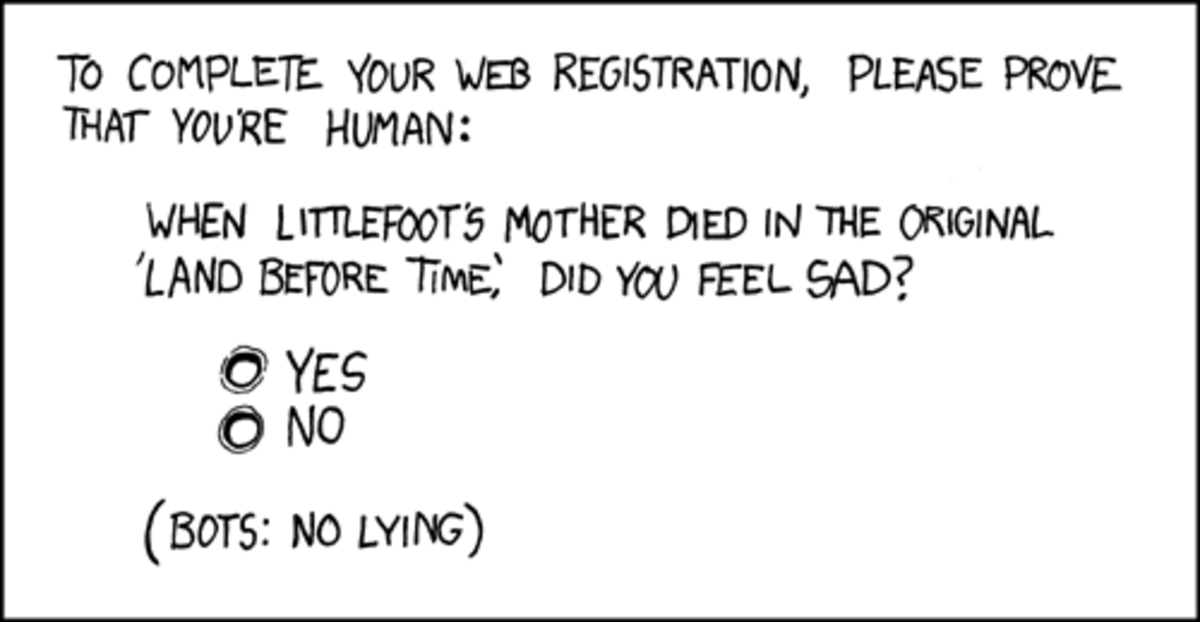Google's "Real Names" Policy: A Bed of Procrustes

Usernames, Privacy, and Online Anonymity
[Oct '11] Anonymity is a vital way to protect online safety for some of the web's most vulnerable populations, yet Facebook and Google+ are pushing a "real names" policy that endangers or silences these groups. Officially, Facebook and Google will not let you use their social services unless you are prepared to use your real (legal) name and photo. [Update 3/12: Google now allows some people to use well-known, established pseudonyms, which must be vetted by Google, but this does not solve most of the privacy and protection issues raised in this article.]
Sites that insist we use real names online claim it's for internet safety, to keep bullies, hackers and predators from...what, using pseudonyms? But Google+ has kicked out members for using their real, legal names, while Google has no way to verify that "Jake Lester" is a real person or a pseudonym. When kicked out, you don't simply lose access to a social network where most peers, colleagues and friends are sharing their lives. You lose access to other Google services like Picasa and Reader. (To be fair, both of those high-profile cases got their accounts back after appeal. But those were their real, legal names, not pen names.)
The use of usernames, online handles and pen names has been a vital means to safeguard privacy since the web's beginnings, and it's one worth fighting for.
Usernames as a form of protection
I have been on the internet since 1989. During that time I have met thousands of people around the world. I have also had run-ins with a few creeps whom I did not want to have my real name, photo, and personal information. There are many women — and some men! — who do not wish to be stalked, who do not wish particular individuals to be able to look them up online and see what they are doing. A need for self-protection should not disqualify you from being able to communicate with friends and associates on the social media platforms most people use.
Young people also need the option of usernames. As a forum moderator, I saw kids from age 10 to 20 sharing their opinions, personal lives, and creative writing under pen names. These usernames protected them from later embarrassment. Their early oversharing and clumsy writing would not turn up a search on their real name by employers, college admissions officers, landlords, or new boyfriends/girlfriends.
In countries with internet censorship and repressive regimes, it is impossible and dangerous to post under your real name. Even in less repressive countries, there are times when something needs saying under the online equivalent of a witness protection program. For example, before Don't Ask Don't Tell was repealed, a gay soldier could not speak on what it's like to be gay in the military without losing his/her job. In a business with unfair labor practices, someone might wish to speak about deplorable conditions without being fired. We can't know all the situations where someone might need to be anonymous, but we know they EXIST, and it is wrong to deny people that option.
Ask Mark Twain why he had a pseudonym. Or Deep Throat. Or Marilyn Monroe. Or Rawhide. There are many reasons for pseudonyms and pen names, some pre-internet, some unique to the internet.
Of course, if someone posts under a pseudonym instead of with (you assume!) a real name, you should take that as one of several clues about trustworthiness. But there may be good reasons for it. Google, and all savvy web users, should judge online content by its CONTENT, not by the (possibly faked) author photo and plausible-looking name.
As an ex-moderator, I know full well the deplorable things people do online under the shield of anonymity. But a "real names" policy won't stop hacking, harassment and abusive activities. The bad behavior of a few is not sufficient reason to endanger or silence the many who need the protection afforded by usernames.
Update 3/12: Google allows Pseudonyms... Or Not.
Thanks to Hikeguy in the comments below for alerting me that Google is now allowing a limited form of pseudonyms. Here's the official Google+ announcement detailing the policy.
As I understand it:
- New users can apply for a pseudonym, but must go through a stringent application process proving your pseudonym is famous, established, and has a large following. So you can't establish a pen name on Google... you start by getting active on other social networks, at which point why turn over your personal life to Google?
- Existing users can apply for a pseudonym, but must go through the same application process, and again may be turned down if you're not sufficiently famous or Google deems your pen name isn't established enough as your web identity. AND if/when you get the pseudonym approved, your older posts will be under your real name, and your real name will still appear on your profile, thus destroying the pseudonym.
- Anyone can add a nickname in quotes to your real name: Ellie "Greekgeek" Brundige, E.G.
- Some people are beating the system by establishing multiple Google+ accounts linked to different email addresses. Is this allowed? Will Google crack down on them someday? Can anyone find an official Google Plus policy re: multiple accounts?
See this excellent discussion by ZDNet Tech Blogger Violet Blue for problems with the new Google Plus pseudonyms policy.
Usernames as a communication filter
There's another very sound reason for usernames which has less to do with safety and more to do with communication. The web tears down ALL barriers to communication: you can communicate instantly with anyone in the world. If you post publicly, anyone in the world can read your post. Death to privacy!
Usernames paradoxically allow you to take advantage of being able to communicate with anyone who shares your interests without having to tell them everything about yourself. The username acts as a filter. You can geek about Star Trek with friends, yet ten years later (or even tomorrow), you won't be embarrassed by an employer looking up your real name and finding photos of you dressed as a Klingon. Personal messages and email don't serve the same function, because they require you to choose a recipient, rather than sharing with anyone who shares your interests. Usernames are privacy barriers, like the partitions in a clothing store's changing room, which are not required in your own house.
Google+ almost gets this right by allowing you to share different things with different circles, but it forces you to share the most personal information you have — your legal name and photograph — with everyone on the planet.
I have been actively participating in the web under two usernames since before Google existed. I would wager that more people know those two pen names than know my real name. Yet Google refuses to acknowledge those pen names exist, or that my readership might wish to look me up by them, or that I might communicate with them under a nom de plume.
Real Names Policy: The Bed of Procrustes
Instead, Google, Facebook and its ilk seem determined to make us share everything about our lives with everybody. Likes, shares, interests, hobbies — a timeline of our lives — every comment or thought we have is now on record and searchable by banks, employers, relatives, lawyers, and anyone who might harbor any sort of resentment against us or be our adversary in any kind of legal or business affair.
For that reason, I, like millions of people, won't use Google+. Instead, we use pre-Web 2.0 sites like dreamwidth and livejournal to express ourselves. When a social media site gives us the same rights and protections as those sites which have been around since the 90s, we will join it.
The real names policy is a Procrustian Bed that Google and Facebook are trying to force upon the web. It's most useful for advertisers who are trying to gather as much information about you as possible. Most people have given in, because those are the two big inns beside the road— you can stay outside, but then you must sleep in a ditch.
Personally, I am waiting for a new inn to set up next to the road with beds that will accommodate all of us.
Excellent Article on Anonymity vs "Authenticity"
- Online identity: is authenticity or anonymity more important? | Technology | guardian.co.uk
This is a great discussion of the two sides of the web. Having come to the web at the beginning, I am still operating on an "interest-driven" web paradigm, where one's web interactions are based on shared interests rather than general socializing.





